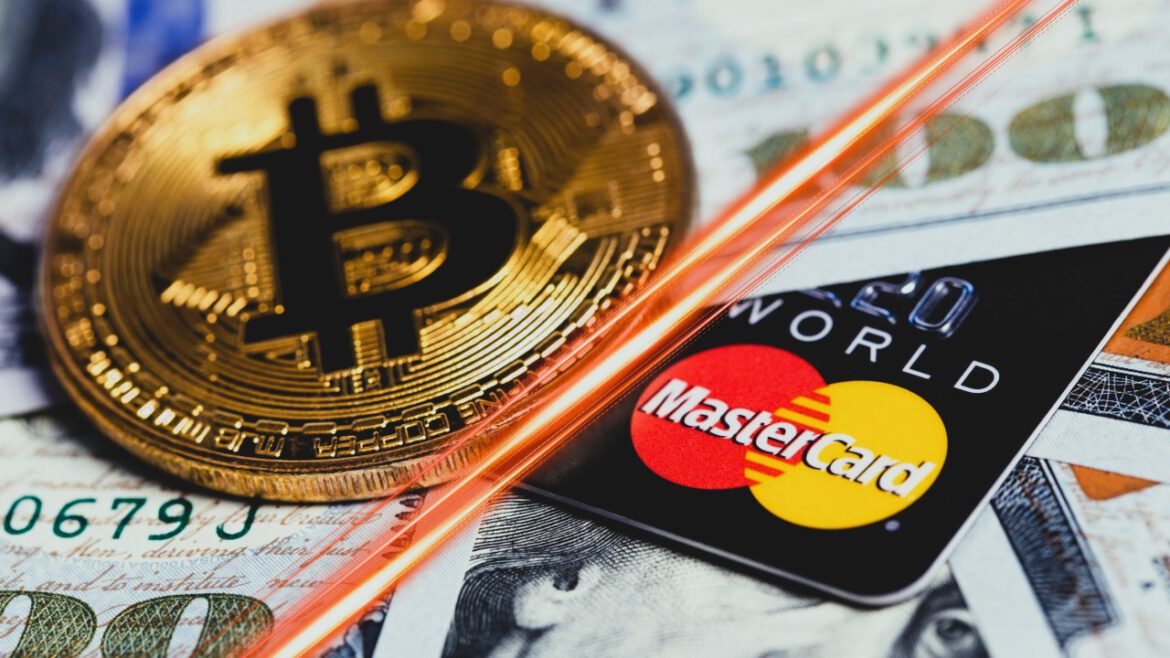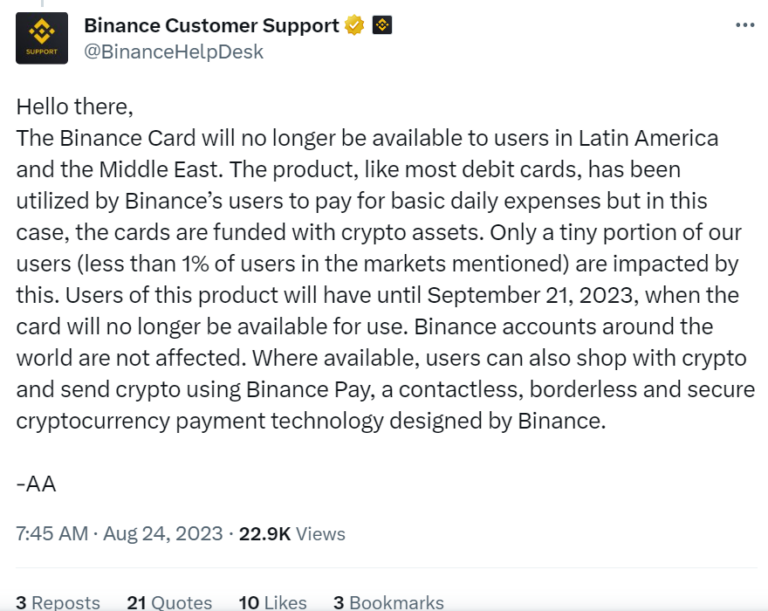Mastercard has decided to end its affiliation with renowned cryptocurrency exchange Binance.
The collaboration was heralded as a crucial step in Mastercard’s cryptocurrency journey because it sought to launch a prepaid crypto card in Brazil. But Mastercard’s most recent choice represents a change in that trend.
The collaboration was ended, and Binance’s customer support account tweeted that users in Latin America and the Middle East would no longer be able to use the Binance Card. Less than 1% of users in the aforementioned markets are predicted to be impacted by this move.
After September 22, Mastercard-linked Binance Cards, which allowed users to use cryptocurrency from Binance accounts for fiat purchases, would no longer be available in Argentina, Brazil, Colombia, and Bahrain, among other nations. The Mastercard partnership’s reach will no longer include Kuwait, Oman, Qatar, Saudi Arabia, and the United Arab Emirates, according to Binance.
Reaction from the Parties Involved
When asked about the specifics of the discontinuation’s scope, Mastercard responded that “only four pilot programs are in the market,” declining to specify whether this applied to Bahrain only or to the entire Gulf Cooperation Council. In response to questions, a representative for Binance reiterated the initial Twitter message.
Mastercard cited the need to provide cardholders enough time to convert their Binance wallet holdings as justification for delaying the termination of the agreement. The previous month, Visa stopped distributing co-branded cards in Europe in the context of a similar relationship.
Adapting Regulatory Environment
Raj Dhamodharan, Executive Vice President of Mastercard and the company’s head of blockchain and cryptocurrency, did not directly address the issue of reviewing connections with crypto firms under regulatory scrutiny in a May interview. He underlined the importance of network security, consumer experiences, and consumer safety.
The partnership between Mastercard and Binance has come to an end in line with the current legal and PR issues facing the cryptocurrency exchange. The Commodity Futures Trading Commission filed a lawsuit against Binance and its CEO, Changpeng Zhao, in March for allegedly leading American cryptocurrency traders away from the US subsidiary and toward the more lucrative global exchange. The Securities and Exchange Commission then brought forward new complaints, including claims of breaking US money laundering rules, in June.
The US Department of Justice may indict Zhao and Binance at this time, which has led to several executive resignations due to worries about Zhao’s handling of the government’s inquiry.


